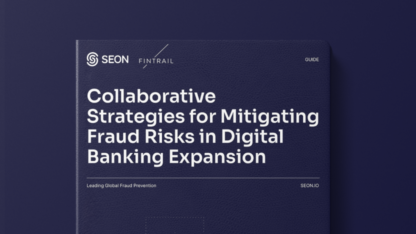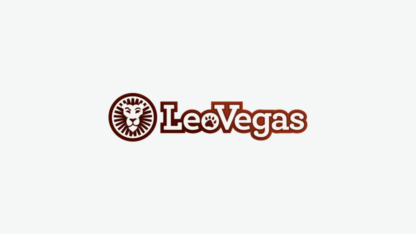Best Simility Alternatives
| Company | Core Features | Notable Clients | Summary |
| SEON | • digital footprint analysis • explainable whitebox AI • out-of-the-box blackbox ML • dynamic friction rewards good customers • advanced device fingerprinting | Revolut, Patreon, Kindred | Versatile, customizable, affordable fraud prevention solution for all sectors |
| BioCatch | • behavioral analytics with 2k data points • PSD2 SCA • behavioral insights • advanced visualizations • billions of historical datapoints | Nuance, Experian, Microsoft | Biometric behavior specialist with unique focus on physical risk signals |
| TruValidate | • bank/card verification • document verification + facial recognition module • device fingerprinting and risk analysis • email/phone verification • powerful range of TransUnion business solutions | Sprint, Citibank National, Betfred | Per-transaction pricing model, can integrate with other TransUnion products and databases to become a true solution |
| SHIELD | • device fingerprinting • real-time profiling • persistent profile updates • user-friendly workflow • focus on gaming, apps, ridesharing | TrueMoney, Baazi Games, Alfagift | Specializes in superapps and app marketplaces |
| ThreatMetrix (LexisNexis) | • on-premise deployment • large IP database • graph visualization • advanced device identifiers • taps into the LexisNexis Risk Solutions network | Zara USA, Fidelity, Discover Financial | On-premise or cloud-based FI risk management |
| Signifyd | • fraud + account protection, payment optimization • chargeback guarantee • ecommerce enterprise-focused • SalesForce, Shopify integrations • highly automated | Samsung, Philips, Mango, Birkenstock | Designed to provide enterprise retailers with a high-automation fraud solution with chargeback protection |
Improve your risk management with SEON’s real-time data enrichment tools, behavioral checks, and deep device fingerprinting analysis.
Book a Meeting
What Does Simility Offer?
Simility’s technology was developed off the back of the experience of its co-founder, Rahul Pangam, as a director at Google, where he helped to reduce ad fraud by 90%.
Just four years after its conception, Simility was acquired by the PayPal company to be part of its software offering to merchants.
The software’s fraud-fighting capabilities revolve around the Adaptive Decisioning Platform, which is described as a combination of:
- extensive data intelligence
- big data-trained machine learning
- “effective decision orchestration” that puts up minimal friction
- robust link analysis
Under the hood, all of these products make use of the massive PayPal “data lake” to inform and enable automated decisioning – a process fine-tuned by the software suite itself.
Rules get tuned by the AI to suit each client automatically, based on thousands of prepackaged vertical-specific rulesets which evolve to the domain’s needs. As well as this, the challenger/champion feature makes sure the existing AI model remains the best fit for a given customer.
The software also provides an intelligible explanation for its findings, with visualizations available to help with manual review.
Why Look for a Simility Alternative?
When considering Simility as your fraud prevention provider, it is worth keeping in mind that, while PayPal does offer huge scope, reach, and most importantly, a massive pool of historical transaction data to draw upon, this tactic does not always lead to perfect fraud confidence.
Such historical databases can be prone to stale data, in turn leading to false positives and false declines. Simility’s focus on enterprise-level retailers and automation can also potentially affect accuracy.
The companies that won’t mind these incorrectly declined transactions are, of course, the largest ones.
That being said, the companies for which Simility is the best fit are certainly ones that require a bespoke, structured payment contract.
Smaller organizations may often find the costs associated with Simility’s fraud prevention to be untenable and thus might prefer to partner up with an alternative vendor.
Six Simility Alternatives
The differences in each organization’s cybercrime needs and fraud pain points require an understanding of the available solutions to find the best fit.
Here are six alternatives to Simility which may be better suited to your company.
SEON
SEON provides its customers with risk score-based fraud prevention from sourcing real-time data. Compared to similar market offerings, SEON’s risk platform offers high customizability and granular reporting.
Primary technology includes:
- discovery and analysis of a complete user profile based on their online footprint: IP, email, phone, device fingerprinting, social media checks, velocity checks, and more
- fully customizable rulesets that can be tuned to individual needs client-side, easily
- modular use of API calls – with the organization choosing what to share and what information is relevant
- free support, free trial, easy deployment, Shopify integration, Chrome extension for manual review
By gathering a huge net of OSINT data, SEON gives its customers the ability to turn a few easily accessible data points into a profile with measurable risk characteristics.
These characteristics, uniquely including 90+ social media and online platform checks, are then analyzed by both whitebox risk rules and a blackbox ML module for the likelihood of fraudulent behavior.
Even in cases where a customer might have minimal information online, we assess this lack of data as typical or not typical of someone in their country and with their background. In practice, this means sourcing alternative data for customer due diligence.
SEON is also versatile.
Not only are the rules fully customizable to suit the risk appetite of the customer, but the offered API calls can also be used modularly, making it easier for small business to control their bottom line.
BioCatch
The Israel-based BioCatch company was founded by Avi Turgeman in 2011. Turgeman leveraged his experience as an ex-military whitehat hacker specializing in biometric behavior analysis, counter-terrorism and system vulnerability management to build the BioCatch product around.
Today, BioCatch owns over 60 patents on biometric data products. These patents revolve around unique ways to detect suspicious or bot-like behavior for both PC and mobile phone usage.
The company’s software suite has five key focus points:
- account opening protection
- account takeover protection
- mule account detection
- social engineering scam detection
- PSD2 SCA
The technology that delivers these services is based around the analysis of the behavior of a user to determine their threat level. This approach is particularly useful when dealing with the automated bots that often target enterprise-level organizations.
The BioCatch analysis process is broken into two areas of focus: physical behavior and cognitive behavior. The former analyzes how a user’s movements interact with the website, looking for inhuman patterns of movement with a mouse or on a mobile screen.
The latter looks at things like the velocity of engagement – how fast and how often a user is interacting with the website – and other patterns of robotic behavior. As BioCatch offers these features relatively uniquely among competing products, it is also often deployed into an existing fraud stack rather than as a standalone product.
TruValidate
Iovation made its fraud prevention name in the iGaming sector, growing its reputation until it was acquired by the TransUnion company in 2018 and rebranded as TruValidate. As part of that umbrella of products, TruValidate has diversified its target verticals and updated its offerings to match.
TruValidate is a risk-based ID proofing and authentication application that allows fraud teams to monitor the entire customer journey from onboarding to checkout. The software provides ID confidence by looking at the results of bank and card analysis, device fingerprinting, facial and document verification, as well as email and phone lookups, among others.
As well as this, the software offers modular tools that can be applied to platforms that require them, such as one-time passcodes and knowledge-based authentication. These tools reference a massive database of some 10 billion unique devices and 117 million recorded instances of fraud and abuse.
TruValidate’s inclusion in the TransUnion suite of software means that integration with its partner applications is easy.
As other offerings within that partner network include things like credit applications, creating a secure payment environment is convenient when using TruValidate and other TransUnion solutions, though potentially expensive for SMEs.
SHIELD
With a focus on bringing fraud prevention technology to the mobile app industry, SHIELD provides companies in ridesharing, gaming and superapps – among others – with the ability to protect their bottom line at various touch points, from payment processing protection to ad fraud.
For major customers like Razer, HappyFresh and TrueMoney, the appeal of SHIELD lies behind three main products:
- Device Intelligence
- AdShield
- Compliance AI
Device Intelligence programming puts millions of data points through a risk-detecting AI to look for signs of danger. SHIELD Sentinel, which is included in the same module, monitors user accounts continually in order to determine exactly when a previously known “good” account turned malicious, and even potentially allowing you to determine why – for example, via a successful account takeover.
AdShield approaches ROI improvement by helping to control the efficiency of advertisement campaigns, allowing companies to see what is effective and where invalid traffic is skewing the cost-benefit.
SHIELD’s entire security journey is captured in its Compliance AI product, which has a number of functions that combine to help companies stay compliant with transaction monitoring mandates.
In addition to the technologies leveraged by Device Intelligence, Compliance AI also analyzes relationships between submitted data points within your user base, looking for potentially dangerous associations. It also has an adjustable Risk Policy Engine, which allows fraud teams to set risk thresholds based on individual risk appetites.
ThreatMetrix
After its foundation in 2005, this Australia-based authentication platform was acquired by the massive LexisNexis group and folded into its Risk Solutions suite of products.
The ThreatMetrix software itself is used to identify trusted customers and fraudsters and inform risk decisioning as part of a larger security stack, which is naturally offered by the rest of LexisNexis’ risk management solutions.
The authentication side of the software utilizes the LexID system, where each customer’s ID becomes tokenized and then is accessed and processed by products across the LexisNexis spectrum, so they can all be informed with consistent data.
Existing proprietary datasets of historical transactions clock in at 35 billion annually, and the holistic fraud detection software package draws its data insights and analytics from this pool.
Though some additional modules have to be purchased and integrated separately, potentially pushing ThreatMetrix out of the range of cost-effectiveness for some businesses, the software also comes with useful solutions like malware protection, deep connection analysis, integration hub for third-party products, IP intelligence, data networking with other partners, as well as modules that help differentiate bad users from those who, say, just delete their cookies regularly.
Signifyd
From its home base in California, Signifyd has grown from the minds of two former PayPal risk experts to now facilitate the world’s largest network of merchants.
As such, the company’s fraud mitigation software is heavily focused on enterprise-level retailers, with strong emphasis on combatting pain points in the ecommerce vertical. These include friendly fraud and return policy abuse, account takeovers and, of course, chargebacks, all offered with a high level of automation.
The solutions that Signifyd offers are focused around:
- fraud protection
- abuse prevention
- account protection
- payments protection with SCA
There is also a payments optimization for payment platforms available.
Signifyd’s risk-scoring engine is powered by the company’s huge network of merchants as they submit their transaction data. This data, in turn, gets turned into industry-specific rulesets to inform the company’s modules. As the company boasts, integration is quick and results are immediate.
Incoming traffic gets scrutinized for associations with fraud based on these rulesets and assigned a score. Though the company aims for enterprise-level companies which prefer a high degree of automation, the assigned scores are clearbox, fully explainable for anyone to scrutinize.
Signifyd has a 100% guarantee on any transaction it approves which then turns into a chargeback and a clear focus on the pain points plaguing merchants. Other perks offered by Signifyd that the vertical can take advantage of include protection from illegal resellers, promo abuse, and employee discount protection.
Get a demo to see how SEON can address your pain points without weighing down your customers’ experience, helping you grow faster and safer.
Ask an Expert
How to Choose a Simility Alternative
Just as the business models of each company differ significantly, so, too, do the fraud prevention options on the market.
To find the best fit for an organization, it is as important to understand the touchpoints and pain points applicable to your operations as knowing the options available.
Many fraud prevention solutions, for example, will work even better if your historical transaction data is labeled as fraudulent or trustworthy because integrated machine learning algorithms can learn from previous activity.
If any particular fraudster loopholes exist in your digital infrastructure, there may be a fraud prevention solution that fills them, but you need to identify these before you address them.
If Simility is not the product that best suits your company’s growth objectives, perhaps in favor of a different pricing model or security focus, make sure you understand your own needs before choosing another fraud fighting vendor.
FAQ
For the full Simility stack, the pricing is not currently listed online. Simility is focused on large retailers and offers contracts at that scale. For more specific information, their sales team is available for a quote. From there, you can assess which solutions might be cheaper – but keep in mind that there are various pricing models on the market and this should also be factored into your decision.
The fine details of the Simility product are available on the official website, and there are reviews you can find around the web. Make sure you also read our SEON vs Simility head-to-head comparison.
Learn more about:
Sift Alternatives | Emailage Alternatives | Kount Alternatives | Feedzai Alternatives








